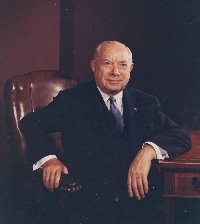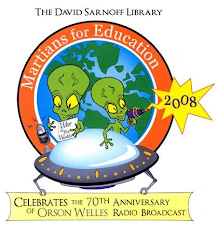What happens when you crossbreed computers and radios? Professor Narayan B. Mandayam of Rutgers University will explain in a free lecture at Sarnoff Corporation's auditorium next to the David Sarnoff Library Thursday, December 6, at 6:30 p.m. If you thought satellite radio was the last word in audio or video delivery, think again! Sponsored by the IEEE Princeton Section's Communications and Consumer Electronics Chapter, Dr. Mandayam's talk covers not only the technical requirements for software-defined radio networking but also considers the implications for broadcast and spectrum regulation and the future of the wireless internet. Here's his abstract, with his bio further below:
Recent advances in programmable integrated circuits have created an opportunity to develop a new class of intelligent or “cognitive” radios which can adapt to a wide variety of radio interference conditions and multiple protocol standards for collaboration between otherwise incompatible systems. Such a cognitive radio would be capable of very dynamic physical layer adaptation via scanning of available spectrum, selection from a wide range of operating frequencies (possibly non-contiguous), rapid adjustment of modulation waveforms and adaptive power control. In addition, a suitably designed cognitive radio with a software-defined physical layer would be capable of collaborating with neighboring radios to ameliorate interference using higher-layer protocols. Perhaps for the first time in the short history of networking, cognitive radios offer the potential for organic formation of “infrastructure-less” collaborative network clusters with dynamic adaptation at every layer of the protocol stack including physical, link and network layers.
While the development of cognitive radio hardware and software, especially at the physical layer, has received considerable attention, the question of how one transforms a set of cognitive radios into a cognitive network is much less well understood. This talk will present an overview of cognitive radio network research from the points of view of information and coding theory, game theory, collaborative and cooperative communications. The implications of such cognitive radio networks to spectrum policy as well as the design of the future internet will also be highlighted.
Narayan B. Mandayam is Professor at Dept. of Electrical & Computer Engineering,Rutgers University. He also serves as Associate Director at WINLAB. His research interests are in various aspects of wireless data transmission ncluding system modeling and performance, signal processing and radio resource management with emphasis on techniques for cognitive radio technologies. Dr. Mandayam is a recipient of the Institute Silver Medal from the Indian Institute of Technology, Kharagpur in 1989 and the National Science Foundation CAREER Award in 1998. He was selected by the National Academy of Engineering in 1999 for the Annual Symposium on Frontiers of Engineering. He is a coauthor with C. Comaniciu and H. V. Poor of the book "Wireless Networks: Multiuser Detection in Cross-Layer Design," Springer, NY. He has served as an EditorWireless Communications (2002-2004) and as a guest editor of the IEEE JSAC Special Issue on Adaptive, Spectrum Agile and Cognitive Radio Networks. He is currently serving as a guest editor of the upcoming IEEE JSAC Special Issue on Game Theory in Communication Systems.
skip to main |
skip to sidebar
News and events from the David Sarnoff Library in Princeton NJ, dedicated to the study and promotion of innovation: www.davidsarnoff.org

